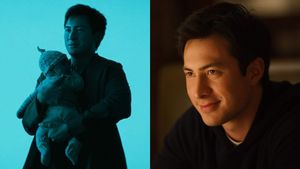When a study came out last week linking higher rates of suicide, depression, risky sex, and drug use among gay children rejected by their parents compared to those embraced by their family, the collective response was, "Well, duh."
But the study, conducted by San Francisco State University researchers, says and does a lot more than people may realize, said Caitlin Ryan, principal investigator on the study and director of SFSU's Family Acceptance Project.
"Actually, [the results] do come as a surprise," Ryan said. "We can assume family rejection would contribute to health problems and distress in your life, but before this study no one identified the specific behaviors that parents and caregivers express acceptance or rejection and measured them in young people."
Where before researchers studying this subject asked gay children whether their parents were simply accepting or not, Ryan says her study -- to be published in the January issue of Pediatrics, in an article titled "Family Rejection as a Predictor of Negative Health Outcomes in White and Latino Lesbian, Gay and Bisexual Young Adults" -- digs deeper.
"We identified 108 behaviors that parents and caregivers use to express acceptance or rejection," Ryan said. "For example, when you exclude [gay] kids from family activities, their odds of attempting suicide are nine times greater."
Ryan's results came after interviewing 53 California parents with gay teenagers to identify those 108 behaviors that could be considered "accepting" or "rejecting." Hiding a child from another relative, criticizing a gay child for their gender non-conforming appearance, or blaming a child for being bullied were considered "rejecting" behaviors. Next, 224 white and Latino gay people in their early to mid-20s were asked which of the behaviors they experienced in their adolescence and how they now dealt with depression, suicide, and drug use. It was found that parents who took baby steps towards acceptance -- i.e. ending pressure for gay kids to date opposite-sex peers -- can make huge differences in the future mental health of their children.
Ryan hopes the research will be used by school counselors and pediatricians to demonstrate how everything they do has an effect on their children.
"I have a matching grant to develop interventions with ethnically diverse families to decrease rejection and increase support for their LGBT kids," Ryan said.
While many parents exhibited "rejecting" behaviors in the study, Ryan was hesitant to criticize them.
"These are very common behaviors that parents do out of habit, or behaviors they think will help their children; like expressing disappointment and shame," Ryan said. "Parents



































































Charlie Kirk DID say stoning gay people was the 'perfect law' — and these other heinous quotes